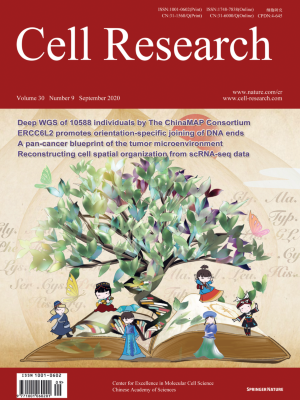
Advanced Search
Submit Manuscript
Advanced Search
Submit Manuscript
Volume 30, No 9, Sep 2020
ISSN: 1001-0602
EISSN: 1748-7838 2018
impact factor 17.848*
(Clarivate Analytics, 2019)
Volume 30 Issue 9, September 2020: 814-816 |
Dysregulated adaptive immune response contributes to severe COVID-19
Kuai Yu1 , Jingjing He1 , Yongjian Wu2 , Baosong Xie3 , Xuefei Liu1 , Bo Wei4,5 , Haibo Zhou6 , Bingliang Lin7 , Zhixiang Zuo1 , Wen Wen8 , Wenxiong Xu7 , Bin Zou9 , Lai Wei9,* , Xi Huang2,* , Penghui Zhou1,*
1State Key Laboratory of Oncology in South China, Collaborative Innovation Center for Cancer Medicine, Sun Yat-sen University Cancer Center, Guangzhou, Guangdong 510060, ChinaDear Editor,
The outbreak of the new coronavirus SARS-CoV-2 has resulted in a global pandemic. Due to the lack of a specific drug against this virus, the current clinical management of this disease mainly depends on supportive care to reduce inflammatory responses and to keep the lung functioning.1 Understanding the underlying immunopathology of coronavirus disease 2019 (COVID-19) is therefore of paramount importance for improving the current treatment. In this study, we found a distinct feature of adaptive immunity in severely affected patients, the coincidence of impaired cellular and enhanced humoral immune responses, suggesting that dysregulated adaptive immune responses advanced severe COVID-19. Interestingly, expression of Prothymosin alpha (PTMA), the proprotein of Thymosin alpha-1 (Tα1), was increased in a group of CD8 T memory stem cells accumulated during severe disease. We further showed that Tα1 slightly reduced T cell activation in vitro and promoted proliferation of effector T cells. Moreover, Tα1 treatment relieved the lymphopenia in COVID-19 patients. Our data suggest that early intervention of adaptive immune response might be critical for the prevention of severe COVID-19.
https://doi.org/10.1038/s41422-020-0391-9